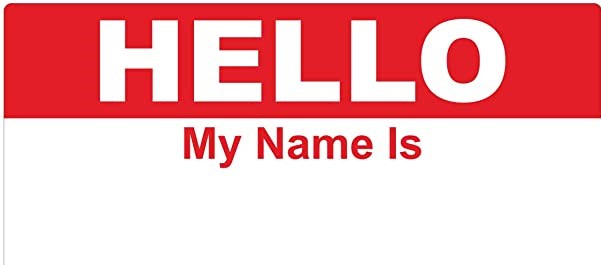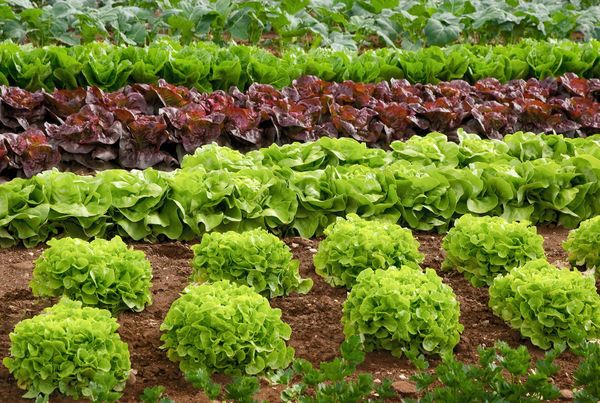In the English-speaking world, a surname is commonly referred to as a last name because it is usually placed at the end of a person’s full name, after any given names. In many parts of Asia, as well as some parts of Europe and Africa, the family name is placed before a person’s given name. In most Spanish-speaking and Portuguese-speaking countries, two surnames are commonly used and, in some families, even three or more are used (often due to a family claim to nobility).
Surnames have not always existed and today are not universal in all cultures. This tradition has arisen separately in different cultures around the world. In Europe, the concept of surnames became popular in the Roman Empire and expanded throughout the Mediterranean and Western Europe as a result. During the Middle Ages, this practice died out as Germanic, Persian, and other influences took hold. During the late Middle Ages surnames gradually re-emerged, first in the form of bynames (typically indicating an individual’s occupation or area of residence) and gradually evolving into modern surnames. In China surnames have been the norm since at least the 2nd century BC.
A family name is typically a part of a person’s personal name which, according to law or custom, is passed or given to children from one or both of their parents’ family names. The use of family names is common in most cultures around the world, with each culture having its own rules as to how these names are formed, passed, and used. However, the style of having both a family name (surname) and a given name (forename) is far from universal. In many cultures, it is common for people to have one name or mononym, with some cultures not using family names. In most Slavic countries, as well as other countries including Greece, Lithuania, and Latvia, for example, there are different family name forms for male and female members of the family. Issues of family name arise especially on the passing of a name to a newborn child, on the adoption of a common family name on marriage, on renouncing of a family name and on changing of a family name.
Surname laws vary around the world. Traditionally in many European countries for the past few hundred years, it was the custom or law that a woman would, upon marriage, use the surname of her husband, and that any children born would bear the father’s surname. If a child’s paternity were not known, or if the putative father denied paternity, the new-born child would have the surname of the mother. That is still the custom or law in many countries. The surname for children of married parents is usually inherited from the father. In recent years there has been a trend towards equality of treatment in relation to family names, with women being not automatically required or expected, or in some places even forbidden, to take the husband’s surname on marriage, and children not automatically being given the father’s surname. In this article, family name and surname both mean the patrilineal surname, handed down from or inherited from the father, unless explicitly stated otherwise. Thus, the term “maternal surname” means the patrilineal surname which one’s mother inherited from either or both of her parents. For a discussion of matrilineal (‘mother-line’) surnames, passing from mothers to daughters, see matrilineal surname.
Albania:
1. Hoxha (a Muslim priest, Sunni or Bektashi, with its variant Hoxhaj)
2. Prifti (a Christian priest, Catholic or Orthodox)
3. Shehu (a Bektashi priest)
Armenia:
1. Hovhannisyan ( son of Hovhannes (John)
2. Harutyunyan (son of Harutyun (resurrection))
3. Sargsyan (son of Sargis (Sergius))
Austria:
1.Gruber ( the one who lives in the valley)
2. Huber ( the one who own the land – farmer)
3. Bauer ( farmer)
Azerbaijan:
1. Mammadov ( son of Mammad)
2. Aliyev ( son if Ali)
3. Huseyjov ( son of Hüseyn)
Belarus:
1. Ivanov ( son if Ivan)
2. Kozlov
3. Kovalev
Belgium:
1. Peeters
2. Janssens
3. Maes
Bosnia and Herzegovina:
– Bosnia :
1. Hodžić ( Iman)
2. Hadžić (Hajji)
3. Čengić ( turkish for Genghis)
– Serbia:
1. Kovačević ( son of the Blacksmith)
2. Subotić ( of Saturday)
3. Savić ( son of Sava)
Bulgaria:
1. Ivanov ( son if Ivan)
2. Georgiev ( son of Georgi)
3. Dimitrov ( sim if Dimitri)
Croatia:
1. Horvat ( ethnic name for Croat)
2. Kovačević (patronymic, from kovač “blacksmith)
3. Babić ( matronymic, or nickname, from baba “(old) woman”, “grandmother”)
Czech Republic:
1. Novák ( new men)
2. Svoboda ( free holder)
3. Novotný ( new man, newborn)
Denmark:
1. Nielsen ( son if Nick)
2. Jensen ( son if John)
3. Hansen ( son of John)
Estonia:
1. Tammy ( oak)
2. Saar ( island , tree ash)
3. Sepp ( smith)
Faroe Islands:
1. Joensen ( son of John)
2. Hansen ( son of John)
3. Jacobsen ( son of Jacob)
Finland:
1. Korhonen ( unnown)
2. Virtanen ( stream)
3. Mäkinen ( hill)
France:
1. Martin ( son of Martin)
2. Bernard ( son of Bernard)
3. Dubois ( Woods dweller)
Georgia:
1. Beridze
2. Mamedovi
3. Alievi
Germany:
1. Müller ( Miller)
2. Schmidt (blacksmith)
3. Schneider ( tailor)
Greece:
1. Samaras ( saddle maker)
2. Papoutsis ( shoe maker)
3. Kritikos ( someone from Crete)
Hungary:
1. Nagy ( big/ great)
2. Kovács ( blacksmith)
3. Tóth ( Slovak/ Slavic)
Iceland:
1. Blöndal
2. Thorarensen
3. Hansen
Ireland:
1. Murphy (Descendant of Murchadh (a personal name meaning “Sea hound/warrior”)
2. (O’) Kelly ( Descendant of Ceallach (“strife”)
3. (O’) Sullivan ( Descendant of Súilleabhán (“dark-eyed one”, “one-eyed” or “hawk-eyed”)
Italy:
1. Rossi ( Red – northern and central Italy)
2. Russo ( Red – southern Italy)
3. Ferrari ( blacksmith)
Kosovo:
1. Krasniqi
2. Gashi
3. Berisha
Latvia:
1. Bērziņš ( Birch)
2. Kalniņš ( hill)
3. Ozoliņš ( Oak)
Lithuania:
1. Kazlauskas ( from Kozioł “billy goat”, certainly from before Christianity).
2. Jankauskas ( from Jankowski from Janek from Jan in Polish “John” apostle).
3. Petrauskas ( from Peter the apostle. Port in polish)
Luxembourg:
1. Schmit ( blacksmith)
2. Muller ( Miller)
3. Weber ( Weaver)
Malta:
1. Borg
2. Camilleri
3. Vella
Moldova:
1. Rusu ( from Rus, From Russian)
2. Ceban ( Shepard)
3. Ciobanu ( Shepard)
Montenegro:
1. Popović ( son of priest)
2. Markowić ( son of Mark/Marko)
3. Vujović ( son of Vujo)
Netherlands:
1. De Jong ( young one )
2. Jansen ( johnson, son of John)
3. De Vries ( the Frisian)
North Macedonia:
1. Andov ( son of Ande)
2. Angelov ( son of Angel)
3. Bogdanov ( son of Bogdan)
Norway:
1. Hansen ( son of Hand)
2. Johansen ( son of Johan or Johannes)
3. Olsen ( son of Olav, Ole, Olaf or Ola)
Poland:
1. Novak ( new man)
2. Kowalski ( kowal – blacksmith)
3. Wiśniewski ( wiśnia- cherry )
Portugal:
1. Silva ( Woodland)
2. Santos ( Saint/Saints)
3. Ferreira ( Blacksmith)
Romania:
1. Pops ( priest)
2. Popescu ( son of a priest)
3. Pop ( short from Popa)
Russia:
1. Smirnov ( son of Smirnoy , meek one )
2. Ivanov ( son of Ivan)
3. Kuznetsov ( blacksmith)
Serbia:
1. Jovanović ( son of Jovan (John))
2. Petrović ( son of Petar ( Peter))
3. Nikolić ( son of Nikola ( Nicholas))
Slovakia:
1. Horváth ( Croat)
2. Kováč ( blacksmith)
3. Varga ( leather worker, cobbler )
Slovenia:
1. Novak ( new men)
2. Horvat ( Croat)
3. Kovačič ( son if the blacksmith)
Spain:
1. García
2. Fernández ( son of Fernando)
3. González ( son of Gonzalo)
Sweden:
1. Andersson ( son of Anders)
2. Johansson ( son of Johan)
3. Karlsson ( son of Karl)
Switzerland:
1. Bianchi ( white)
2. Bernasconi
3. Fontana ( the one who dwells by the fountain)
Turkey:
1. Yılmaz ( indomitable)
2. Kayak ( rock)
3. Demir ( iron)
Ukraine:
1. Melnyk ( Miller)
2. Shevchenko ( shoemaker)
3. Boyko ( member of a group of Ukrainian highlanders)
United Kingdom:
– England:
1. Smith
2. Jones
3. Taylor
– Northern Ireland:
1. Willson
2. Campbell
3. Kelly
– Scotland:
1. Smith
2. Brown
3. Willson
– Wales:
1. Jones
2. Williams
3. Davies






























































































Your post is very informative. its interesting how surnames vary between each country!
thank You so much !